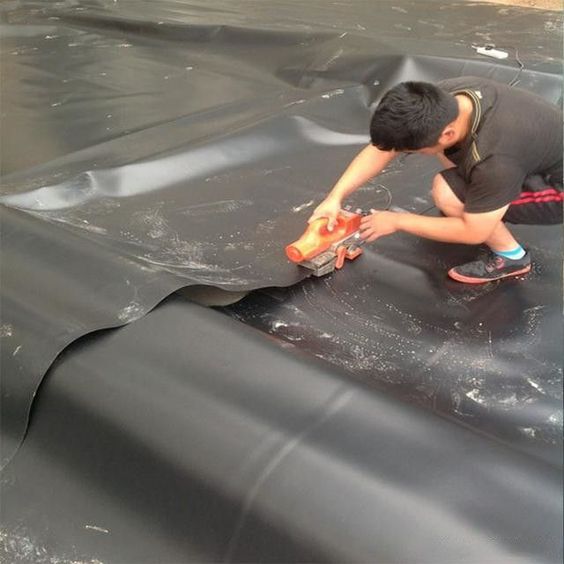High-Density Polyethylene (HDPE) material sheets have become a cornerstone in various industries due to their durability, versatility, and cost-effectiveness. Whether you’re in construction, packaging, agriculture, or any other sector, understanding the properties and applications of HDPE sheets can help you leverage their benefits for your projects. This comprehensive guide will explore everything you need to know about HDPE material sheets.
What are HDPE Material Sheets?
Overview
HDPE, or High-Density Polyethylene, is a thermoplastic polymer made from petroleum. Known for its high strength-to-density ratio, HDPE is widely used in the production of plastic bottles, corrosion-resistant piping, geomembranes, and plastic lumber. HDPE sheets are formed through the extrusion process, creating flat, smooth, and durable panels that can be cut, shaped, and welded for various applications.
Properties of HDPE
- High Strength-to-Weight Ratio: Despite being lightweight, HDPE sheets are extremely strong and resistant to impact.
- Chemical Resistance: HDPE is resistant to a wide range of chemicals, making it ideal for use in environments where exposure to corrosive substances is common.
- Weather Resistance: HDPE can withstand harsh weather conditions, including extreme temperatures and UV exposure, without degrading.
- Low Moisture Absorption: HDPE sheets have minimal moisture absorption, which helps in maintaining their structural integrity over time.
- Recyclable: HDPE is environmentally friendly and can be recycled into new products, reducing waste and conserving resources.
Key Benefits of HDPE Material Sheets
1. Durability
HDPE sheets are renowned for their durability. They can endure heavy loads, resist abrasion, and withstand harsh environmental conditions, making them suitable for both indoor and outdoor applications.
2. Versatility
The versatility of HDPE sheets is unmatched. They can be easily cut, welded, and molded into various shapes and sizes, catering to a wide range of industrial and commercial uses.
3. Cost-Effectiveness
HDPE sheets offer a cost-effective solution for many applications. Their long lifespan and low maintenance requirements translate to reduced long-term costs.
4. Safety
HDPE is non-toxic and non-leaching, ensuring it is safe for use in applications involving food and potable water. Its resistance to chemicals also reduces the risk of contamination.
Common Applications of HDPE Material Sheets
1. Construction Industry
HDPE sheets are widely used in the construction industry for a variety of purposes:
- Protective Barriers: Used as barriers to protect surfaces from damage during construction activities.
- Formwork: Employed in concrete forming systems due to their strength and ease of use.
- Ground Stabilization: Used in ground stabilization and erosion control applications.
2. Packaging Industry
HDPE is a preferred material in the packaging industry for making:
- Containers: Used in the production of bottles, jugs, and containers for various liquids.
- Liners: Utilized as liners in packaging to protect goods from moisture and contaminants.
3. Agriculture
In agriculture, HDPE sheets are used for:
- Greenhouse Linings: Providing a durable and UV-resistant lining for greenhouses.
- Pond Liners: Creating leak-proof and durable liners for agricultural ponds and water storage.
4. Chemical Industry
HDPE’s chemical resistance makes it ideal for:
- Storage Tanks: Fabrication of chemical storage tanks and containers.
- Pipe Systems: Used in piping systems for transporting chemicals and other hazardous materials.
5. Marine Industry
HDPE is highly valued in the marine industry for:
- Dock Fenders: Protecting docks and boats from damage due to impact.
- Boat Components: Manufacturing various boat components like seats, storage bins, and more.
Overview
HDPE, or High-Density Polyethylene, is a thermoplastic polymer made from petroleum. Known for its high strength-to-density ratio, HDPE is widely used in the production of plastic bottles, corrosion-resistant piping, geomembranes, and plastic lumber. HDPE sheets are formed through the extrusion process, creating flat, smooth, and durable panels that can be cut, shaped, and welded for various applications.
Properties of HDPE
- High Strength-to-Weight Ratio: Despite being lightweight, HDPE sheets are extremely strong and resistant to impact.
- Chemical Resistance: HDPE is resistant to a wide range of chemicals, making it ideal for use in environments where exposure to corrosive substances is common.
- Weather Resistance: HDPE can withstand harsh weather conditions, including extreme temperatures and UV exposure, without degrading.
- Low Moisture Absorption: HDPE sheets have minimal moisture absorption, which helps in maintaining their structural integrity over time.
- Recyclable: HDPE is environmentally friendly and can be recycled into new products, reducing waste and conserving resources.
Key Benefits of HDPE Material Sheets
1. Durability
HDPE sheets are renowned for their durability. They can endure heavy loads, resist abrasion, and withstand harsh environmental conditions, making them suitable for both indoor and outdoor applications.
2. Versatility
The versatility of HDPE sheets is unmatched. They can be easily cut, welded, and molded into various shapes and sizes, catering to a wide range of industrial and commercial uses.
3. Cost-Effectiveness
HDPE sheets offer a cost-effective solution for many applications. Their long lifespan and low maintenance requirements translate to reduced long-term costs.
4. Safety
HDPE is non-toxic and non-leaching, ensuring it is safe for use in applications involving food and potable water. Its resistance to chemicals also reduces the risk of contamination.
Common Applications of HDPE Material Sheets
1. Construction Industry
HDPE sheets are widely used in the construction industry for a variety of purposes:
- Protective Barriers: Used as barriers to protect surfaces from damage during construction activities.
- Formwork: Employed in concrete forming systems due to their strength and ease of use.
- Ground Stabilization: Used in ground stabilization and erosion control applications.
2. Packaging Industry
HDPE is a preferred material in the packaging industry for making:
- Containers: Used in the production of bottles, jugs, and containers for various liquids.
- Liners: Utilized as liners in packaging to protect goods from moisture and contaminants.
3. Agriculture
In agriculture, HDPE sheets are used for:
- Greenhouse Linings: Providing a durable and UV-resistant lining for greenhouses.
- Pond Liners: Creating leak-proof and durable liners for agricultural ponds and water storage.
4. Chemical Industry
HDPE’s chemical resistance makes it ideal for:
- Storage Tanks: Fabrication of chemical storage tanks and containers.
- Pipe Systems: Used in piping systems for transporting chemicals and other hazardous materials.
5. Marine Industry
HDPE is highly valued in the marine industry for:
- Dock Fenders: Protecting docks and boats from damage due to impact.
- Boat Components: Manufacturing various boat components like seats, storage bins, and more.
6. Retail and Commercial Applications
In retail and commercial sectors, HDPE sheets are used for:
- Displays and Signage: Durable and lightweight HDPE sheets are ideal for creating displays and signage that can withstand outdoor conditions.
- Storage Solutions: HDPE sheets are used to create storage bins, shelves, and cabinets due to their durability and ease of cleaning.
7. Automotive Industry
The automotive industry benefits from HDPE sheets in several ways:
- Interior Components: Used for manufacturing interior components like door panels, seat backs, and dashboards.
- Fuel Tanks: HDPE is used in the production of fuel tanks due to its chemical resistance and strength.
8. Playground and Recreational Equipment
HDPE sheets are also used in the creation of playground and recreational equipment:
- Playground Structures: HDPE is used to build durable and safe playground structures that can withstand heavy use and outdoor conditions.
- Sports Equipment: Used in manufacturing sports equipment such as hockey boards and protective gear.
How to Select the Right HDPE Material Sheets
1. Determine the Application Requirements
Identify the specific requirements of your application, including the mechanical strength, chemical resistance, and environmental conditions the HDPE sheets will be exposed to.
2. Choose the Appropriate Thickness
HDPE sheets come in various thicknesses. Thicker sheets offer greater strength and durability, while thinner sheets may be more suitable for lightweight applications.
3. Consider the Finish
HDPE sheets are available in different finishes, such as smooth, textured, and matte. Choose the finish that best suits your application for aesthetic and functional purposes.
4. Verify Quality Standards
Ensure that the HDPE sheets meet relevant quality standards and certifications, particularly if they are to be used in critical applications like food storage or chemical containment.
Installation and Maintenance Tips for HDPE Sheets
1. Cutting and Shaping
HDPE sheets can be easily cut and shaped using standard tools like saws, routers, and drills. Always use sharp tools to achieve clean cuts and reduce the risk of cracking or chipping.
2. Welding and Joining
HDPE sheets can be welded using various techniques, including butt welding, extrusion welding, and hot gas welding. Proper welding ensures strong and leak-proof joints.
3. Cleaning and Maintenance
HDPE sheets are low maintenance and can be cleaned with mild detergents and water. Avoid using harsh chemicals that may damage the surface. Regular inspection and cleaning help prolong their lifespan.
Conclusion
HDPE material sheets are a versatile, durable, and cost-effective solution for a wide range of applications across various industries. Their unique properties, such as high strength, chemical resistance, and environmental friendliness, make them an ideal choice for many projects. By understanding the benefits and applications of HDPE sheets, you can make informed decisions to enhance the efficiency and longevity of your projects. Whether you are in construction, packaging, agriculture, or any other sector, HDPE sheets offer a reliable and innovative solution to meet your needs.







Leave a comment
Your email address will not be published. Required fields are marked *